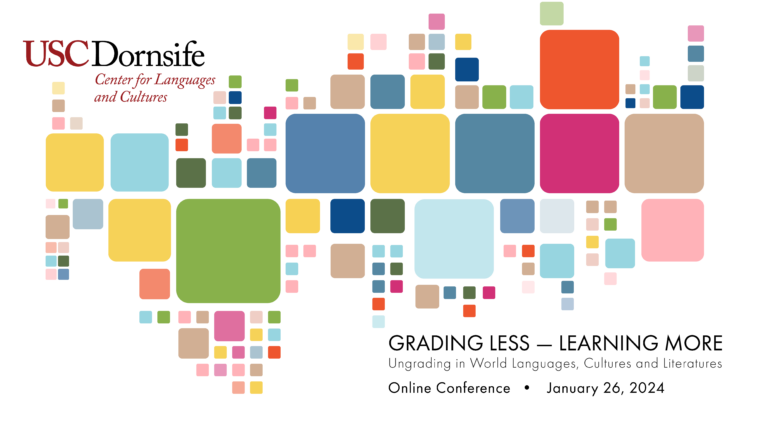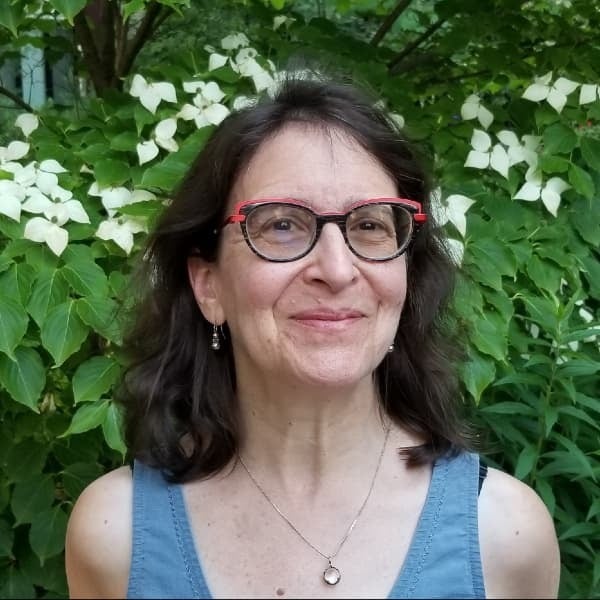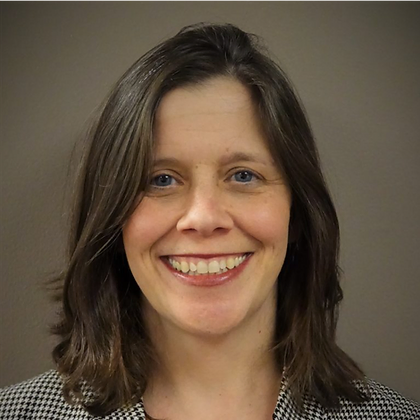
Conference Program
Conference program is now available
As educators, we are always looking for ways to improve our teaching in order to help our students learn better. While ungrading may look different in every classroom, we believe that decentering grades through ungrading shifts the focus back onto student learning, where it belongs. By removing traditional letter or numerical grades from the center of the learning experience, students have more room to take chances, make mistakes without being penalized, and ultimately have more agency over their learning.
The Center for Languages and Cultures at the University of Southern California is excited to announce the conference “Grading Less – Learning More through Ungrading in World Languages, Literatures, and Cultures,” which will focus on the latest research, innovations, and challenges surrounding ungrading and alternative assessments in college-level language, literature, and culture courses.
Join us as we explore the many manifestations of ungrading and its potential to transform the educational landscape. Our conference will provide a forum for educators, researchers, and students to discuss the latest developments, and share their experiences and successful practices.
Some of the topics that will be explored at the conference can include:
- the varying definitions of ungrading
- the use of alternative assessments in ungrading
- the role of self-assessment in ungrading
- feedback
- subject-specific ungrading
- research on grades
- issues of equity
- grades and mental health
- student voices in ungrading
- ungrading and artificial intelligence
- cross-disciplinary and institutional/programmatic considerations
Our conference featured a keynote speech by Susan Blum (the editor of “Ungrading”, West Virginia UP, 2020), a workshop on one-level rubrics by Meg Malone (Director, Assessment and Research, ACTFL), as well as a variety of panel discussions and presentations.
This conference was the perfect opportunity to engage with others who share a passion for transforming education through ungrading.
The conference is fully online and free.
The sessions will be recorded and made available to the public.
Ungrading for Learning: Building on Real Students’ Superpowers
In this talk Susan D Blum introduces some of the principles behind the the growing umbrella of “ungrading” practices—calling into question the centrality of conventional grading practices, which practitioners of ungrading regard as both harmful and unnecessary—in order to place learning at the center of everything we do. Ungrading allows us to build on students’ superpowers, which include curiosity and love of learning, and to avoid some of the harms of conventional schooling. Educators have found that ungrading leads to greater learning, deeper engagement, and greater equity.

Dr. Susan D. Blum, Professor of Anthropology at the University of Notre Dame. Dr. Blum is a cultural, linguistic, and psychological anthropologist specializing in the study of China and the United States. Her latest book, titled Ungrading: Why Rating Students Undermines Learning (and What to Do Instead) was published in December 2020 by the West Virginia University Press.
She received a National Endowment for the Humanities Fellowship for her book, Lies That Bind: Chinese Truth, Other Truths (2007), and has received the Delta Kappa Gamma Educator’s Award, 2010, for her book My Word! Plagiarism and College Culture (2009). Blum has also received an Excellence in Teaching award from The University of Colorado Denver (2000) and the Reverend Edmund P. Joyce, CSC, Award for Excellence in Undergraduate Teaching from The University of Notre Dame (2010).
Grading often takes a great deal of instructor effort without providing actionable feedback to learners. This workshop will present ways to use a one-level rubric to provide iterative and helpful feedback through learner self-assessment, instructor feedback and task revision.

Workshop Presenter: Margaret E. Malone (Director, Assessment and Research, ACTFL)
She has nearly three decades of experience in language test development, materials development, delivery of professional development and teacher training through both online and face-to-face methods, data collection and survey research, and program evaluation. Her current research focuses on language assessment literacy, oral proficiency assessment, the influences of the Seal of Biliteracy on language teaching and learning and the development of short-cut measures of proficiency.
Conference Committee
Evgeny Dengub (dengub@usc.edu) and Lori Mesrobian (lmesrobi@usc.edu)